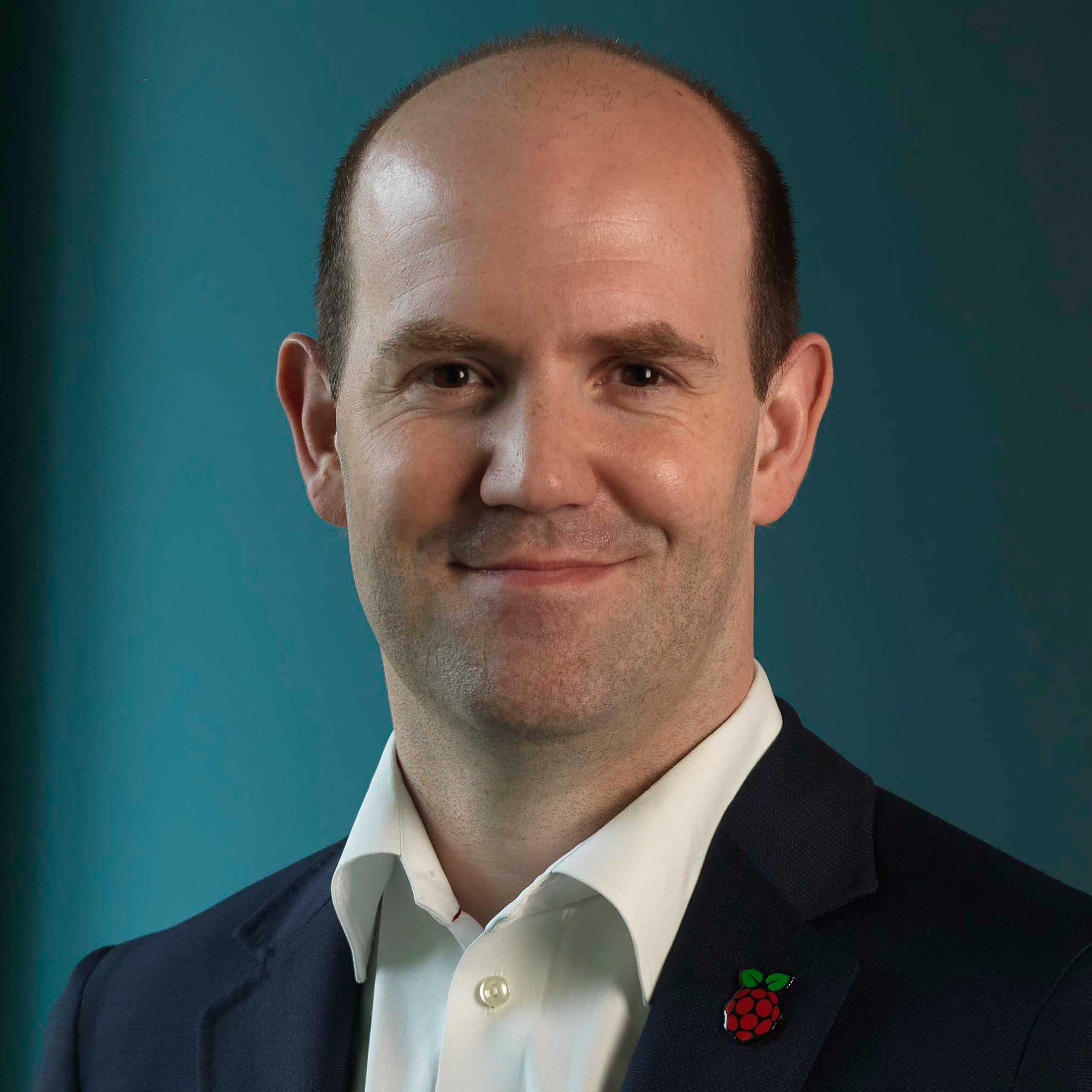
Eben Upton
Our Alma Spotlight this month falls on Raspberry Pi CEO, Eben Upton.
February 2024
What has been your greatest joy in growing Raspberry Pi?
We had very small dreams at the start: to get something programmable into the hands of perhaps a thousand young people in the UK, as a sort of outreach program for the University in Cambridge, to try to get more young people to apply to study Computer Science. Of course, we slightly overshot the target, and Computer Science has gone from being the easiest subject to get into back in 2008, to the hardest. We're not the only contributor to that change, but it's gratifying to think that we made some impact, and that that impact isn't just a Cambridge thing, but is mirrored throughout the higher education sector in the UK and beyond.
Industrial and embedded sales of Raspberry Pi products now dwarf our educational sales, but what still gets me excited are the stories people tell us about kids learning to program with our hardware. I remember how exciting, how liberating, it was when I got my hands on a BBC Micro back in the late eighties, and it's amazing to be creating the same opportunities for a new generation of young people. There's that iconic image from the eighties of a child, lying on the living room carpet, typing something into a computer plugged into the family's 14-inch TV: those 8-bit computers really were set up to act as peripherals to your TV. And now people send us pictures of their children, in 2024, doing the exact same thing. It's a wonderful feeling, and has sustained us through some of the tough times we've experienced over the years.
The UK are world leaders in semiconductor design but few companies really scale in global terms – what can be done to change that?
Well, firstly, the relative scarcity of scaled UK semiconductor companies isn't necessarily a bad sign. Israel, for example, has built a successful tech industry around starting exciting companies, growing them to an intermediate scale, and then having them acquired by larger foreign firms. It's a very viable model, and we see some of it in the UK: the acquisition of CSR by Samsung and Qualcomm, and Dialog by Renesas, spring to mind. And of course we see foreign firms opening UK branch offices to tap into (and in turn sustain) our semiconductor skills base.
But it would be great to see more UK semiconductor companies reaching the scale and impact of Arm. We have some distinctive national capabilities, notably in compound semiconductors, which may enable that, and it's encouraging to see the UK government beginning to recognise the potential of companies in this space, such as IQE.
The microcontrollers we've been building at Raspberry Pi are distinctive in their own way: these are nominally commodity digital devices, on a standard silicon process node, selling into a mature market dominated by large vendors like NXP, ST Microelectronics and Microchip. How can we hope to build a scaled business in this reddest of red oceans? Well, by bringing a very distinctive sensibility to bear:
- We've paid attention to fine architectural detail, which is often overlooked. These are connoisseur products, which give the best engineers unrivalled flexibility in how they use the features of our chips to meet challenging design goals.
- We've made smart choices, in process node selection and business model design, which help us deliver higher performance devices at lower price points than our competitors.
- And of course, we surround our products with that signature Raspberry Pi combination of great software, great documentation, and great community. As with our single-board computers, the goal is to delight the developer by simplifying the development experience.
Looking at the response since we launched our first microcontroller, RP2040, in January 2021, and at our steadily increasing sales volumes, it does feel like we have a good shot at pulling this one off.
Raspberry Pi manufacture their products near your home town in Wales – can the UK continue to compete as manufacturer or does something need to change?
Talking ourselves down is a bit of a national sport in the UK. We need to remember that we invented the Industrial Revolution, and two hundred and fifty years later we're still better than almost anyone else at the business of making stuff. We don't just build Raspberry Pi computers in South Wales, we build plastics in Dudley, in the heart of the Black Country. And in both locations you find yourself surrounded by these little one-, two-, ten-person engineering shops: companies that know how to mould a particular kind of plastic, or mill steel to an incredible tolerance, or fold cardboard just so. This, as much as the giant engineering firms like Rolls Royce, or JLR (or indeed Sony), is what British manufacturing prowess is built on, and the good news is it doesn't need much to sustain it: just cheap electricity, a decent education system, and a culture that holds good physical work in the same esteem as good intellectual work.
This is what I always say when asked what interventions the government should prioritise. The government should do the things that it has a distinctive competence in: build some more nuclear power stations; spend more on education, and particularly on continuing education; and pick ministers who are as keen to be photographed standing on a production line as in a fintech's office in Shoreditch. And we'll do the rest.
What is the best book you have read or TV programme you have watched recently?
I'll pick a book: "Palo Alto: A History of California, Capitalism, and the World" by Malcolm Harris. This was a chance find: I picked it up in the legendary Powell's bookshop in Portland, last October, because I needed some evening reading for a road trip with Liz, and they didn't have a copy of "Going Infinite, by Michael Lewis. It's a history of the development of Silicon Valley, and the tech industry, from an avowedly anti-capitalist (even Marxist) perspective, and while I disagree with a lot of what's in there, it's been a great jumping off point for learning more about one of my favourite places on earth, California (I write this while looking at the object of my fascination, fifty yards away, from the window of my hotel in Stateline, Nevada).
Please note: The views and opinions expressed in this interview are those of the individual financial professional(s) and do not necessarily reflect the views or opinions of Alma Strategic. These insights are provided for informational purposes only and may not be relevant at the time of reading, as market conditions can change rapidly. The information provided should not be construed as investment advice or a recommendation to buy, sell, or hold any financial product or security. Individuals should conduct their own research and consult with a qualified financial advisor before making any investment decisions. Alma Strategic disclaims any responsibility for the accuracy or completeness of the information provided in this interview.
